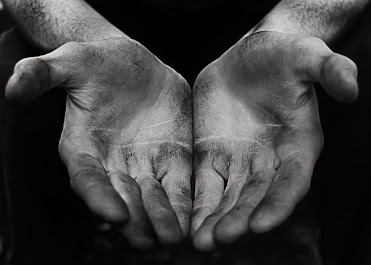The members of the Permanent Council of the Canadian Conference of Catholic Bishops (CCCB) have issued a statement in response to the ongoing humanitarian crisis in Gaza. The statement calls attention to the suffering population of Gaza, particularly children and the elderly, whose lives continue to be endangered due to the ongoing violence and severe deprivation, as well as to the mounting casualties on all sides. The members of the Permanent Council echo Pope Leo XIV’s recent statements about the war and they remind the faithful in Canada to fast and pray for lasting peace in the Holy Land.
Read the published statement here: https://www.cccb.ca/wp-content/uploads/2025/08/2025-08-25-Statement-by-the-Permanent-Council-Humanitarian-Crisis-in-Gaza.pdf
Following the terrorist attack on Israel by Hamas on 7 October 2023, the Holy Land has been in the grip of a devastating war. International concern about the ever deteriorating situation in Gaza has been heightened with the latest reports from the United Nations, that civilians there are on the brink of starvation, while they continue to be exposed to violence and death, with children and the elderly being most at risk.
The loss of human life since the October 7th attack has been tremendous, particularly among Palestinians (both Muslims and Christians). Less than a month ago, Holy Family Church in Gaza City, which had been sheltering children and the wounded, fell victim to a military strike, killing three and seriously injuring several others, for which the Israeli army has acknowledged responsibility and the Israeli government has apologized for the loss of innocent human life.
Pope Leo XIV has recently stated, with profound concern, that the “dire humanitarian situation in Gaza” and the “barbarism of war” causing it must be ended immediately.(1) He has advocated for the provision of humanitarian aid to the stricken civilian population as well as the release of hostages and detainees on both sides.(2) The Holy Father has appealed to the international community “to observe humanitarian law and to respect the obligation to protect civilians, as well as the prohibition of collective punishment, the indiscriminate use of force and the forced displacement of the population” in Gaza.(3) He has reiterated his call for a ceasefire and a resolution that will bring lasting peace.(4)
While the situation in the Holy Land is complex and every human solution has its limitations, the power of prayer should never be underestimated. Praying and fasting for peace in the Holy Land is both urgent and necessary at this time; it is something to which all the Catholic faithful in Canada should feel called to do, prompted by the loss of life on all sides and knowing that God desires peace.
As Christians express their concern about the catastrophic impact this war is having on the civilian population in Gaza, they also do well to pray for and promote respect toward the Jewish People, particularly in the face of the rise in anti-Semitism.
May God, rich in mercy, through the intercession of the Virgin Mary, patroness of the Holy Land and Queen of Peace, touch the hearts of all the inhabitants of the Holy Land – Jews, Muslims, and Christians – so that they may open themselves to forgiveness and justice, and live peacefully together as brothers and sisters united by their common humanity.
25 August 2025
1 Pope Leo XIV, Comments after Angelus Message, Sunday, 20 July 2025.
2 Pope Leo XIV, Comments after Regina Cæli Message, Sunday, 11 May 2025.
3 Pope Leo XIV, Comments after Angelus Message, Sunday, 20 July 2025.
4 Pope Leo XIV, Comments after Angelus Message, Sunday, 27 July 2025.

















